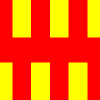Grammar Guide 1 - Back to Basics - Nouns
Welcome to a brand new weekly writing feature: Grammar Guide.
If you are anything like me, you have probably not put much thought into the structure of language since you first learned it in the early days of your education. (What used to be called grammar school). As an adult now playing in the writing space, it has become a more pressing concern. Understanding how things go together makes it easier to bend things to your will. If you don't remember the terms Interrogatives, Articles, Subordinating Conjunctions, Participles (and when they can and can't dangle), or the good old Oxford Comma, then this is the place you should be.
But to get that jumble we have to build a solid base. And the base starts with the humble noun.
What is a noun?
This is the simple one of course:
A Person: 👦
A Place: 🏖️
A Thing: 🚲
An Idea: 💡
A Noun is a label for a person, place, thing, or idea. A noun can perform the action in a sentence or is be acted upon in a sentence.
There are some different types of nouns as well:
- Common Noun- nonspecific person, place or thing such as city
- Proper Noun- Specific person, place or thing such as New York City
- Concrete Noun - a noun you can experience with your senses such as music or fog
- Abstract Noun- a noun that is an idea, feeling or a state of being such as bravery, or exhaustion
- Irregular Noun- a noun that has a plural with an irregular spelling other an -s or -es such as scissors, mice, or thieves.
- Count Noun- a noun you can count such as bike or coat
- Non-Count Noun- a noun you can't count such as food or snow
- Collective Noun- a noun that represents a collection or group such as a pride or a herd
- Possessive Noun- a noun used to show ownership such as dad's truck.
- Attributive Noun- a noun acting as an adjective to another noun such as bacon in bacon cheeseburger. Bacon is an attributive noun modifying cheeseburger.
And there you have it. Next week we jump into the exciting world of adjectives. Let us know what you think below and if you want to play around with the home game, give an example of each of the different types of nouns below. This week is an easy exercise, but these get tougher as you go along. (Such as examples of subordinate clauses or predicate nominatives)
-
References:
- Kern, Jara. (2020). The Infographic Guide to Grammar. Adams Media
- Venolia, Jan. (2001). Write Right! (4th ed.). Ten Speed Press
-
 6
6
-
 6
6






28 Comments
Recommended Comments
Create an account or sign in to comment
You need to be a member in order to leave a comment
Create an account
Sign up for a new account in our community. It's easy!
Register a new accountSign in
Already have an account? Sign in here.
Sign In Now